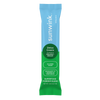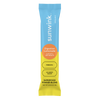Prebiotic Drinks 101: Finding Which Is Best for You

We all know the importance of eating a healthy diet, but what you drink can play just as big a role in your wellness journey.
Whether you’re into fruity Sparkling Superfood Tonics, adaptogenic Superfood Powders, or fermented drinks, one thing’s for sure: there’s no shortage of options when it comes to good-for-you beverages.
The latest must-have addition to your wellness routine? Prebiotic drinks. Acting like food for your healthy gut bacteria, prebiotic drinks can support a well-functioning microbiome. And they taste pretty good, too.
Ready to learn more? Keep reading this complete guide from Sunwink on everything you should know about prebiotic drinks.
What Are Prebiotics?
To understand what prebiotics are, let’s first go over probiotics — as these two are often confused with one another.
Probiotics are bacteria that are similar to the trillions that already live in your intestinal tract. This collection of bacteria is also referred to as the gut microbiome. When consumed regularly, probiotics are designed to support digestive health.
You can find probiotics in dietary supplements such as capsules and fermented foods like yogurt, kefir, or kimchi.
In order to be considered a true probiotic, the bacteria need to survive stomach acid and make their way to your colon. And once they arrive, they must survive in the colon, as well. This ensures that the probiotics can colonize your microbiome and increase the ratio of good to bad gut bacteria.
So, then what are prebiotics?
Well, these are various ingredients that act like food for your good gut bacteria. Just like probiotics, prebiotics need to bypass the digestive system and make their way to your colon. Once they arrive, your gut bacteria can metabolize and ferment the prebiotics, creating a number of healthy byproducts.
But here’s the catch: Different bacteria feed on different prebiotics. So it’s crucial to choose the right ones to eat — or drink.
To help you do just that, read on to the next section, where we’ll go over some common prebiotics.
What Are Some Common Prebiotics?
Ready to learn about some common prebiotics?
Here are three main categories of these healthy ingredients, along with an explanation of their (many) benefits.
1. Resistant Starches
Resistant starches don’t get broken down in the digestive tract and, as such, arrive in the colon intact. When they’re finally broken down by gut bacteria, they often produce butyrate as a byproduct. Butyrate is a fatty acid that has many benefits, such as reduced inflammation.
You can find resistant starch in many different carbs. It tends to be a lot higher in food that has been cooked and cooled. For instance, cooking and cooling white rice may increase its resistant starch content by as much as 2.5 times.
Here are some other foods that contain resistant starch:
- Boiled (and chilled) white potatoes
- Green bananas (A.K.A. plantains)
- Oats
- Beans
- Legumes
- Pasta
2. Inulin
Inulin is a type of fiber that you can find in many different plants. Like most types of fiber, inulin can help you feel full for longer. It can also help to keep things “regular,” as far as digestion is concerned.
Inulin is available in many different supplement forms, including tablets, capsules, and powders. But eating whole foods with inulin is far superior, as this also comes with a boost of vitamins, minerals, and antioxidants.
Here are some places you can find inulin:
- Onions
- Garlic
- Leeks
- Asparagus
- Burdock root
- Chicory root
- Dandelion greens
- Artichokes
- Yams
For not one, but two inulin-containing Superfoods, check out our Digestion Lemon Sparkling Superfood Tonic.
3. Pectin
If you’re a vegan, you might be familiar with pectin as a substitute for gelatin. It’s similar to starch with a gel-like consistency, which makes it super popular for making jams.
You can mainly find pectin in different fruits. It’s full of antioxidants, which can help to protect your body from oxidative stress. In addition, pectin is said to support the intestinal lining, which can prevent harmful gut bacteria from taking over.
Some foods high in this prebiotic include:
- Apples
- Apricots
- Peaches
- Raspberries
- Carrots
- Tomatoes
- Potatoes
What’s the Difference Between Prebiotics and Probiotics?
Although they’re often confused for one another, there are some major differences between prebiotics and probiotics.
Both prebiotics and probiotics are found in food. However, prebiotics are also food for healthy gut bacteria, while probiotics are the bacteria themselves.
Of course, just getting more good bacteria isn’t enough. You must also ensure that they survive with the proper diet. And that’s where prebiotics — which nourish the microbiome — step in to get the job done.
What Are the Benefits of Prebiotics?
Now that we have a good idea of what the different types of prebiotics are, let’s go over some of their benefits. While these really depend on which type of prebiotic we’re talking about, almost all of them can provide at least some of the following five benefits:
1. May Support Gut Health
Prebiotics feed good bacteria, allowing them to grow and support overall gut health. So, it’s not surprising that prebiotics can benefit those with gut-related discomforts, such as constipation.
When your good gut bacteria have what they need to thrive, they can also help you digest food more smoothly. Because prebiotics support your good bacteria, they may also reduce the appearance of bloating and digestive discomfort.
2. May Support a Healthy Metabolism
Prebiotics benefit so much more than just your gut health. They can also impact your blood sugar, triglycerides, and cholesterol.
But not only was inulin effective in supporting healthy blood sugar, but it also had an impact on cholesterol and triglycerides.
While it’s too soon to say that prebiotics can give you the metabolism of your teenage years, they’re definitely seen as a promising way to keep things humming along as they should.
3. May Support a Healthy Inflammatory Response
Your body’s natural response to stressors is healthy and even necessary in small amounts. It’s an important component of healing, so we don’t want to get rid of it altogether. But when this inflammatory stress response is chronic, that’s where health problems begin to pop up.
Prebiotics may help to soothe inflammation caused by your body’s natural responses. Some research has found that supplementing with a prebiotic can support the health of the intestinal lining, which can, in turn, protect you against invading stressors and ease inflammation throughout the body.
4. May Support Appetite
Out-of-control cravings are definitely a major reason why some people overeat. Amongst the different strategies for quelling them, prebiotics may be one option. Research shows that there is a link between gut health and sugar cravings — prebiotics may work to support your overall gut health, which in turn may help you manage sugar cravings.
5. May Support a Healthy Weight
By supporting metabolic function and healthy digestion, prebiotics may help with weight management. Research shows that supplementing with prebiotics may help support overall weight management and weight loss efforts in those who are overweight.
When Should You Take Prebiotics?
If you’re completely new to prebiotics, then you should introduce them into your diet as slowly as possible. That’s because consuming too many can create gas in your GI tract, leading to bloating and constipation. So, slow and steady wins the race.
Keep in mind that your microbiome — just like the rest of your body — operates on a circadian rhythm, being its most active during the early hours of the day. To avoid upsetting your evening, try to get your prebiotics as early in the day as possible.
If you have any chronic digestive problems, then some prebiotics may not be for you. For instance, stone fruits like plums are known to be more irritating for those with G.I. issues. If this is the case, you may want to consult your primary care doctor to find an option that will work for you.
Even if you must avoid certain foods, strive to get your prebiotics from real food sources whenever possible. And while you can’t go wrong with eating more produce, another great option is to get your prebiotics from prebiotic drinks, like our Sparkling Superfood Tonics.
Prebiotic drinks are a super easy and convenient way to get your daily fix of prebiotics. And — we promise — they couldn’t be more delicious. Of course, not all drinks are made the same, so read on to the following section and discover how to choose the best one for you.
What Should You Look for in a Prebiotic Drink?
There’s no such thing as the perfect prebiotic drink — but if it meets the following criteria, it just might be pretty close to perfect.
Here’s what to look for in a prebiotic drink:
No Artificial Sweeteners
Artificial sweeteners are definitely not a better alternative to sugar. Similar to sugar, artificial sweeteners can also drive cravings and cause changes in your gut’s composition.
Even so-called “healthy” substitutes like stevia are known to have some potential side effects. So, whatever you choose to drink, make sure it’s free from these additives.
Superfood Ingredients
Superfoods are plants that are very nutrient-dense. So, using them as the main ingredients in prebiotic drinks means you’re doing something good for your gut and getting a hefty dose of nutrients.
Sunwink’s Superfood tonics and powders are made with various Superfoods, which will nourish you from head to toe.
Takeaways
Prebiotics act as food for your healthy gut bacteria. Consuming them has been shown to support weight loss, quell cravings, settle digestive upset, and promote metabolic health.
For prebiotics that actually taste good, Sunwink’s got your back. Check out our yummy Sparkling Superfood Tonics for high-quality sources of prebiotics and Superfoods.
Sources:
Probiotics, prebiotics and synbiotics- a review | PMC
Prebiotics: Definition, Types, Sources, Mechanisms, and Clinical Applications | PMC






